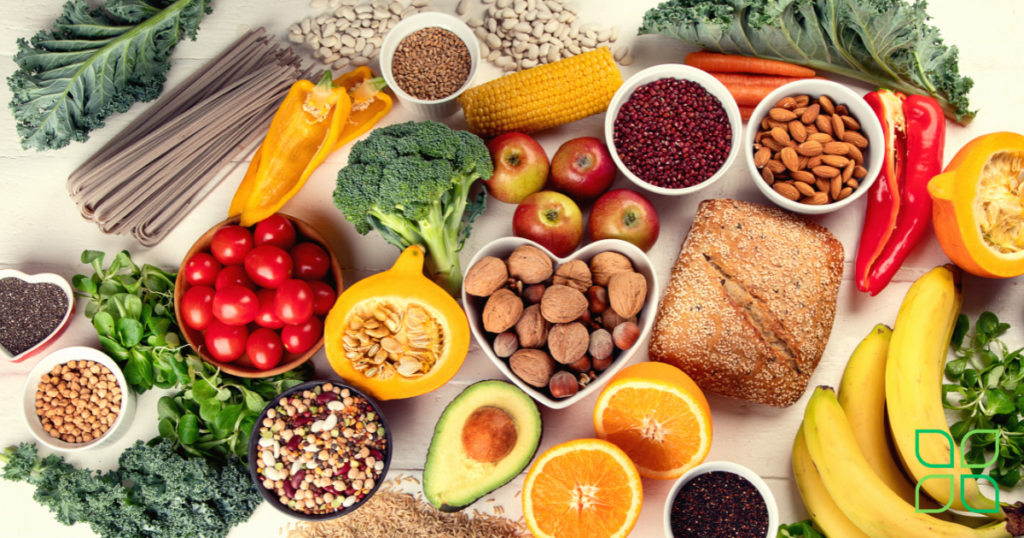Does Fiber Intake Affect Autophagy? Exploring the Connection
In the realm of health and nutrition, two terms have been gaining significant attention: fiber intake and autophagy. Both are crucial for maintaining optimal health, but how do they interact with each other? In this blog post, we will delve into the connection between fiber intake and autophagy, exploring how these two elements can synergize to promote overall well-being.
Understanding Autophagy

Autophagy, derived from the Greek words “auto” (self) and “phagy” (eating), is a natural process by which cells degrade and recycle their own components. This cellular “self-cleaning” mechanism helps to remove damaged organelles, proteins, and other cellular debris, thereby maintaining cellular health and function.
Research has shown that autophagy plays a critical role in various physiological processes, including:
- Cellular homeostasis: Maintaining the balance of cellular components.
- Aging: Reducing the accumulation of damaged cellular components.
- Disease prevention: Protecting against neurodegenerative diseases, cancer, and infections.
The Role of Fiber in Nutrition
Dietary fiber, found in plant-based foods, is essential for digestive health. It is classified into two main types: soluble and insoluble fiber. Soluble fiber dissolves in water to form a gel-like substance, which can help lower blood cholesterol and glucose levels. Insoluble fiber, on the other hand, adds bulk to the stool and aids in regular bowel movements.

Some of the key benefits of dietary fiber include:
- Improved digestion: Promoting regular bowel movements and preventing constipation.
- Heart health: Reducing cholesterol levels and lowering the risk of heart disease.
- Blood sugar control: Slowing the absorption of sugar and improving blood sugar levels.
- Weight management: Increasing feelings of fullness and reducing overall calorie intake.
The Connection Between Fiber Intake and Autophagy
While the direct relationship between fiber intake and autophagy is still an emerging area of research, several studies suggest that dietary fiber can influence autophagy through various mechanisms:
1. Gut Microbiota and Short-Chain Fatty Acids (SCFAs)
Dietary fiber serves as a prebiotic, providing nourishment for beneficial gut bacteria. When these bacteria ferment fiber, they produce short-chain fatty acids (SCFAs) such as butyrate, acetate, and propionate. SCFAs have been shown to stimulate autophagy by activating specific signaling pathways, including the AMP-activated protein kinase (AMPK) pathway.
Example: A study published in the journal Nature Communications found that butyrate, a type of SCFA, can induce autophagy in mouse models, highlighting the potential link between fiber intake and autophagy.
2. Reducing Inflammation
Chronic inflammation is known to inhibit autophagy. Dietary fiber, particularly soluble fiber, has anti-inflammatory properties that can help reduce systemic inflammation. By lowering inflammation, fiber may indirectly support the activation of autophagy.
Statistic: According to a study in the American Journal of Clinical Nutrition, individuals who consume high amounts of dietary fiber have a 40% lower risk of developing inflammatory diseases compared to those with low fiber intake.

3. Improving Metabolic Health
Autophagy is closely linked to metabolic health. Conditions such as obesity, insulin resistance, and type 2 diabetes are associated with impaired autophagy. Dietary fiber can improve metabolic health by enhancing insulin sensitivity, reducing body weight, and regulating blood sugar levels. These metabolic improvements may, in turn, promote autophagy.
Example: A study in the journal Cell Metabolism found that a high-fiber diet improved insulin sensitivity and promoted autophagy in obese mice, suggesting a potential benefit for metabolic health.
Actionable Tips to Enhance Autophagy Through Fiber Intake
To harness the potential benefits of fiber intake on autophagy, consider incorporating the following tips into your daily routine:
1. Increase Your Fiber Intake
Gradually increase your dietary fiber intake to meet the recommended daily allowance (RDA). The RDA for fiber is 25 grams per day for women and 38 grams per day for men. Focus on consuming a variety of high-fiber foods, such as:
- Fruits: Apples, berries, oranges, and pears
- Vegetables: Broccoli, carrots, Brussels sprouts, and spinach
- Whole grains: Oats, quinoa, barley, and whole wheat
- Legumes: Lentils, beans, chickpeas, and peas
- Nuts and seeds: Almonds, chia seeds, flaxseeds, and walnuts
2. Incorporate Fermented Foods
Fermented foods, such as yogurt, kefir, sauerkraut, and kimchi, contain probiotics that can enhance gut health and promote the production of SCFAs. Including these foods in your diet can support the gut microbiota and potentially stimulate autophagy.

3. Stay Hydrated
Proper hydration is essential for the effective digestion and fermentation of dietary fiber. Drink plenty of water throughout the day to support your digestive system and optimize the benefits of fiber intake.
4. Exercise Regularly
Physical activity has been shown to activate autophagy and improve metabolic health. Combine a high-fiber diet with regular exercise to maximize the synergistic effects on autophagy and overall well-being.
5. Practice Intermittent Fasting
Intermittent fasting is a dietary approach that involves alternating periods of eating and fasting. Research suggests that intermittent fasting can enhance autophagy. Combining intermittent fasting with a high-fiber diet may provide additional benefits for cellular health and longevity.
Conclusion
The connection between fiber intake and autophagy is a fascinating area of research that holds promise for improving health and longevity. While more studies are needed to fully understand the mechanisms involved, current evidence suggests that dietary fiber can positively influence autophagy through various pathways, including gut microbiota modulation, inflammation reduction, and metabolic health improvement.

By incorporating high-fiber foods into your diet, staying hydrated, exercising regularly, and considering intermittent fasting, you can potentially enhance autophagy and enjoy the numerous health benefits that come with it. As always, consult with a healthcare professional before making significant changes to your diet or lifestyle.
Stay tuned for more updates on this exciting topic, and take the first step towards a healthier, more vibrant life!
